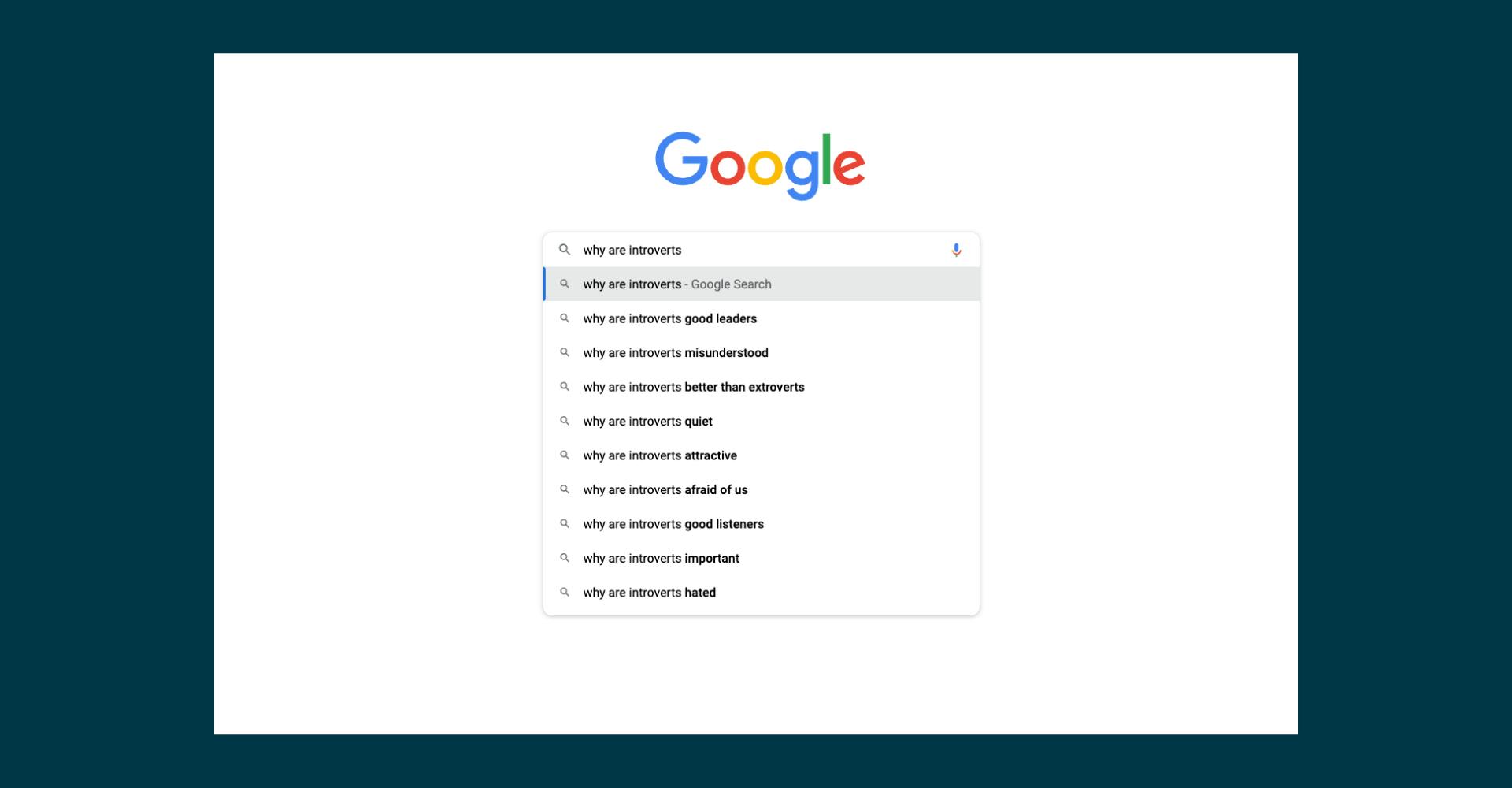How to crush your first week in a new job as an introvert - 6 tips for success
author
Beth Owens
published
Apr 15, 2024
categories
Article
read time
4 mins

So, what does it take for an introvert to thrive when starting a new job or internship? Some of the most successful people throughout history have identified as introverts. This includes Barack Obama, Bill Gates, J.K. Rowling, and even Albert Einstein.
Table of Contents
1. What is an introvert (really)?
2. 6 actionable steps to succeed as an introvert during your first week at work
3. Ask for an onboarding plan for your first week
4. Arrange plenty of one-on-one meetings
5. Block out some recovery time on your calendar to recharge
6. Be open about how you like to work
7. Don’t feel pressured to say ‘yes’ to every invite
8. Never fake being an extrovert
- 1. What is an introvert (really)?
- 2. 6 actionable steps to succeed as an introvert during your first week at work
- 3. Ask for an onboarding plan for your first week
- 4. Arrange plenty of one-on-one meetings
- 5. Block out some recovery time on your calendar to recharge
- 6. Be open about how you like to work
- 7. Don’t feel pressured to say ‘yes’ to every invite
- 8. Never fake being an extrovert
share this post
Workplaces naturally favor extroverts. Why? Because the office is a bustling, loud environment filled with people and distractions. This is where outgoing personalities tend to be in their element.
But for introverts, this can take a fair bit of adjustment - especially if you’re new to a company and trying to find your feet.
But this doesn’t mean that introverts are a liability in the workplace; in fact, some of the most successful people throughout history have identified as introverts. This includes Barack Obama, Bill Gates, J.K. Rowling, and even Albert Einstein.
So, what does it take for an introvert to thrive when starting a new job or internship?
What is an introvert (really)?
There are all kinds of misconceptions about what it means to be an introvert. Unfortunately, most of them are not exactly positive. Introverts are branded as shy, unsociable, not good at being team players… the list goes on.
A quick Google search tells us just how pervasive some of these myths are:

But what does being an introvert actually mean?
Web MD defines an introvert as “a person with qualities of a personality type known as introversion, which means that they feel more comfortable focusing on their inner thoughts and ideas, rather than what’s happening externally.”
Extroverted people tend to face ‘outwards’ and are energized by talking and interacting with others, introverts are ‘inward-facing.’ They thrive when doing more solitary activities and having the time to think and reflect.
The idea of introversion vs. extroversion was first introduced by psychologist Carl Jung in the 1920s. He theorized that people have an introverted and an extroverted side to their personalities. However, one side tends to be more dominant. This defines whether a person gets energy from being around other people (extroverted) or spending time alone (introverted).
It’s this tendency to be inward-facing that can make it more challenging for introverts to fit in seamlessly with the routine and quirks of a new workplace.
But hold fire before you start googling ‘best jobs for introverts’; by following these 6 actionable tips during your first week at your new job or internship, you can set yourself up for success in any workplace environment:
6 actionable steps to succeed as an introvert during your first week at work
We have put together some actionable steps to make your first week at a new job a success. We have compiled this list from our learnings at Lumin as well as a few online resources. As a fast-growing global tech company, we have onboarded hundreds of employees and built a strong company culture. All of our team members know the challenge of starting a new job. Here are our suggestions:
Ask for an onboarding plan for your first week
The fear of the unknown is one of the worst parts of starting a new job. What will my workspace be like? What will I be expected to do during my first week?
As it turns out, introverts are much more prone to this kind of thinking. A study by Dr. Laurie Helgoe found that the frontal cortex, the part of the brain responsible for decision-making and problem-solving, is much more active in introverts, indicating a bigger biological need for planning and research.
In practice, this makes the lack of an onboarding plan especially challenging for introverts. Without something to consult and prepare for, this creates stress and anxiety - not the best frame of mind for starting a new job.
In advance of your start date, make an effort to reach out to your new manager and ask whether they can put together an onboarding plan that covers a few key tasks for each day. By having some concrete tasks to prepare for, you can face that first week with more confidence.
At Lumin, we generally create an onboarding plan for all new employees. This onboarding plan contains a list of all the onboarding tasks that will be conducted to get our new employees set up. We also schedule time for one-on-one meetings with different team members and people across the business.
Arrange plenty of one-on-one meetings
Introverts generally find group meetings more challenging than their extroverted counterparts. Introverts prefer to listen and analyze what is being said, which can run the risk of coming across as ‘shy’ or unwilling to contribute ideas. Add in the pressure to put a bunch of new names to new faces, and you have a recipe for the dreaded ‘welcome’ meeting.
While these meetings are obligatory, you can use them as an opportunity to set up some one-on-one meetings with team members. Being able to focus your attention on getting to know one person at a time is a lot less intimidating and helps you to gain a better understanding of what each person does at the company.
These meetings don’t have to be super formal; something as simple as a trip out of the office to grab coffee works wonders for getting to know your co-workers better!

Block out some recovery time on your calendar to recharge
Spoiler alert: Your first week will likely be ‘information overload’. A new job brings in hundreds of small changes to your routine that take some time to adjust to.
Accumulating these vital pieces of knowledge, from learning (and remembering!) your new route to the office to knowing who to contact when your computer stops working, will take up a lot of mental energy during that initial onboarding period.
This is why it’s so important to give yourself some time each day to recharge and reflect on everything you’re learning. For introverts, recharging generally means getting to spend some time alone in a quiet space - something that can feel next to impossible in a busy office setting.
Most workplaces will set you up with a work email and calendar system within a day or so of starting. Think of your calendar as an introvert’s best friend; in a week where you’re likely to be in back-to-back meetings, tutorials, and more, your calendar allows you to block out chunks of time to take a walk, review your notes, or simply spend alone with your thoughts. If your office has bookable meeting rooms or workspaces, even better!
Be open about how you like to work
It’s fair to say that traditional 9-5 workplaces haven’t always done a great job of enabling introverted staff to perform at their best. From noisy, open-plan spaces to the now thoroughly debunked ‘hot-desking’ trend, offices can sometimes feel like an enemy to productivity.
But by taking ownership of your work style early on, you can put yourself on a path to a happier, more productive work environment.
It could be that you like wearing noise-canceling headphones when you’re focusing on a big project. Maybe you prefer to stay quiet in discussions to reflect on everyone’s contributions, and then send out your own in a group message later.
With more workplaces now offering remote and hybrid work arrangements, it’s also important to share what works best for you in a WFH setting. For example, if you find unexpected Slack Huddles a bit anxiety-inducing, ask your team to message you first so you have time to get your thoughts together.
Collaborative tools like Lumin, Slack and Loom can provide a great way to communicate ideas with colleagues. At Lumin, we use many collaborative software tools to allow our teams work together without the need for endless meetings.
Whatever it is that makes you tick, it’s important to communicate this to your manager and your team early on so they understand how you like to work and what they can do to enable your success. While this might feel a bit awkward at first, being open about your work style will help your team and your company to get the very best out of your talents.
Don’t feel pressured to say ‘yes’ to every invite
No matter whether it’s an internship or your first professional job, your first week is likely to be full of invitations, from team lunches to networking events and after-work drinks.
Share on X
While social events are a fantastic way to embrace company culture and get to know your team, they can also be quite draining. Especially if you’re the center of attention as the ‘new person’ - a nightmare scenario for introverts!
“While it can be tempting to go from a networking lunch right back to work, or from a networking cocktail event right to a dinner, if you’re an introvert and you do that you won’t be able to bring your best self to your next commitment.” Says Lisa Pitrilli, author of The Introvert’s Guide to Success in Business and Leadership. “Take the time to recharge, whether by walking from lunch back to work or by finding 30 minutes alone between cocktails and dinner.”
Remember: Your first week is a marathon, not a sprint. If you’re feeling a bit overwhelmed or you don’t feel that a certain event will allow you to put your best foot forward, there’s nothing wrong with turning down an invite to get yourself back on track.
And last, but definitely not least:
Never fake being an extrovert
It’s fair to say that introverted people can feel a lot of pressure to ‘act extroverted’ in the workplace. For every guide out there on how to make a good impression at your new job, there’s usually a section dedicated to the importance of being ‘high energy’, ‘confident’, or ‘engaging’.
Why? Because the traits that we associate most with extroverts i.e. being outgoing and talkative, tend to be celebrated the most in career-building. As new hires, we want to put our best foot forward, and hiding our more introverted tendencies may feel like the best way to go.
Not only is this easier said than done - it could also set you up for failure in the long run.
“Whoever you are, bear in mind that appearance is not reality. Some people act like extroverts, but the effort costs them energy, authenticity, and even physical health.��” Says Susan Cain in her famous book Quiet: The Power of Introverts in a World That Can't Stop Talking.
Remember: your new company has hired you for a reason. They were impressed enough by your experience, attitude, and ideas to offer you the position. So, you shouldn’t feel the pressure to ‘pretend’ to be someone you’re not - your workplace has already decided that you’re a great fit!
Being an introvert can sometimes feel like a weakness, especially in a world that celebrates extroverted personalities. But by following the tips outlined in this article, you can make sure that your first week is a successful and enjoyable one that sets you up for a strong tenure with your new employer.
share this post